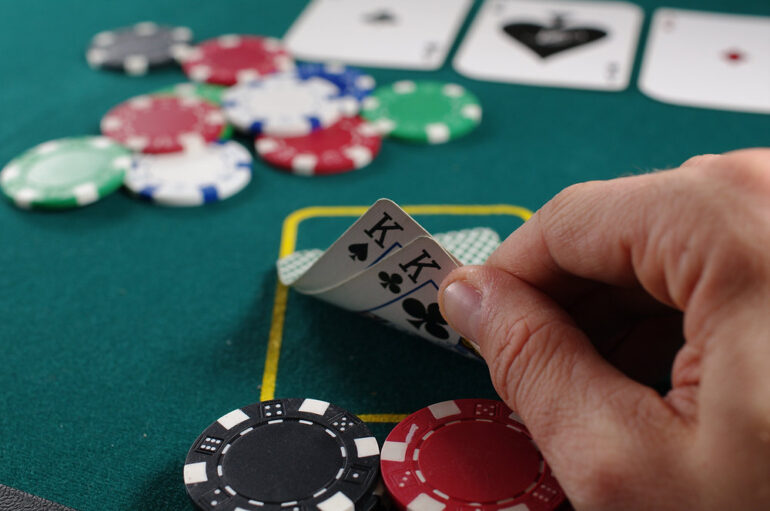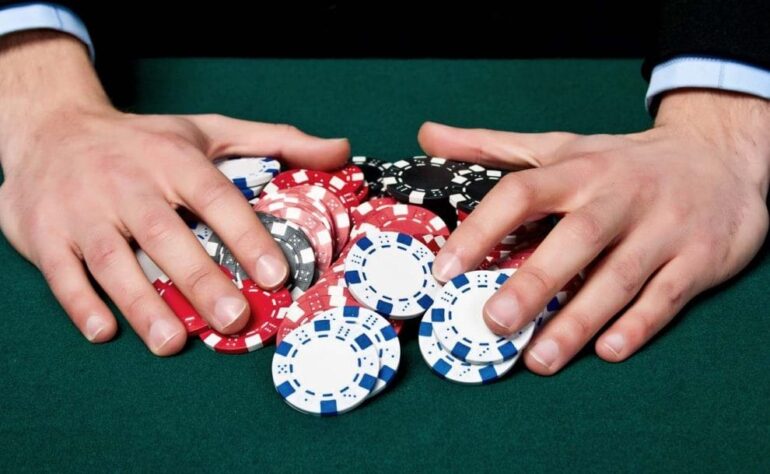The world of professional gambling is as enticing as it is intense, characterized by high stakes, razor-thin margins, and the ever-looming specter of chance. For those who call this realm their profession, the pressure is a constant companion, an invisible adversary that can be as formidable as any flesh-and-blood opponent sitting across the poker table.
How these professionals manage this pressure, remain poised under the spotlight, and make decisions that could either swell their bank accounts or drain them in the blink of an eye is a topic that fascinates many. This article delves deep into the strategies, mindsets, and philosophies employed by some of the most successful gamblers to manage the enormous pressures of their profession.
The Psychology of Pressure in Gambling

At its core, the pressure felt by professional gamblers is not markedly different from that experienced by athletes, traders, or anyone whose livelihood involves high-risk, high-reward scenarios. However, gambling introduces a unique blend of skill, strategy, and chance, making the pressure particularly volatile and unpredictable. Professionals in this field must not only master the games they play but also their own minds, ensuring that stress does not cloud judgment or lead to costly mistakes.
Emotional Regulation and Resilience
One of the foundational skills for a professional gambler is emotional regulation. The ability to maintain an even keel, irrespective of the highs of a win or the lows of a loss, is paramount. This is not to say that professional gamblers are devoid of emotion. Rather, they have learned through experience and often, rigorous self-discipline, to not let their emotions dictate their actions. Resilience, the ability to bounce back from setbacks without losing confidence or focus, is equally crucial. This mental toughness allows them to view losses as learning opportunities and not as indictments of their skill or strategy.
Risk Management and Decision Making
Professional gamblers understand that not every bet will be a winner and that the key to long-term success lies in making more informed, strategic decisions than ill-advised, impulsive ones. This involves a deep understanding of risk management, knowing how much to wager on a given bet relative to their total bankroll, and avoiding the temptation to chase losses.
It also involves an analytical approach to decision-making, where choices are based on data, probabilities, and an intimate knowledge of the game, rather than gut feelings or emotions. In the realm of online gaming, platforms like Flexepin casinos offer a secure and controlled environment where players can apply these principles of risk management and strategic decision-making. By setting limits and using pre-paid options, gamblers can better manage their bankrolls and make more calculated decisions, aligning with the disciplined approach of professional gamblers.
The Role of Routine and Preparation

Preparation plays a significant role in how professional gamblers handle pressure. Many adhere to strict routines and rituals that help them get into the right mental state before a gambling session. This can include physical exercise, meditation, reviewing past games, or studying their opponents. The idea is to control as many variables as possible before entering the unpredictable arena of gambling. This preparation extends to continuous learning and improvement, where professionals constantly refine their strategies, study new trends, and stay abreast of the latest research and techniques in their games of choice.
Coping Mechanisms and Support Systems
Even with the most rigorous preparation and mental discipline, the pressures of professional gambling can sometimes breach a player’s defenses. In such instances, having healthy coping mechanisms is vital. This can range from engaging in hobbies unrelated to gambling, seeking the company of friends and family, to professional mental health support. Support systems, both personal and professional, provide a safety net, offering both practical advice and emotional solace during tough times.
Mindfulness and Psychological Flexibility
A growing number of professional gamblers are turning to mindfulness and other psychological techniques to enhance their focus, reduce stress, and maintain psychological flexibility. Mindfulness, the practice of being present and fully engaged with the current moment without judgment, can help gamblers remain centered and make clear-headed decisions. Psychological flexibility, the ability to adapt to shifting situations and emotional states, is equally important, allowing gamblers to adjust their strategies on the fly and cope with the unpredictable nature of their profession.
The Zen of Gambling: Detachment and Focus

Some of the most successful professional gamblers speak of achieving a Zen-like state of detachment when playing. This doesn’t mean they don’t care about the outcome of their bets, but rather, they focus solely on making the best decisions possible, accepting that the result, ultimately, is out of their hands. This philosophical approach reduces the emotional weight of each bet and allows them to stay focused on the long game rather than getting bogged down by the outcome of individual wagers.
Lifestyle Choices and Physical Health
Physical health and lifestyle choices play a more significant role in handling pressure than many might assume. Regular exercise, a balanced diet, and sufficient sleep are not just good health advice; they’re strategies employed by professional gamblers to ensure they’re in the best physical and mental shape to face the rigors of their profession. A healthy body supports a healthy mind, providing the stamina needed for long sessions and the clarity for making split-second decisions.
Learning from Losses: The Growth Mindset
Professional gamblers, much like professionals in any field, understand that growth often comes from failure. Adopting a growth mindset, where challenges and setbacks are seen as opportunities for learning and improvement, is key to enduring the ups and downs of gambling. This perspective helps in depersonalizing losses, viewing them not as personal failures but as integral parts of the learning curve.
The Importance of Passion and Purpose

Finally, underlying all these strategies and approaches is a genuine passion for the games they play and a clear sense of purpose. Professional gamblers are not just in it for the money; they are driven by a love for the game and the intellectual challenge it presents. This intrinsic motivation helps sustain them through tough times and keeps them focused on their long-term goals rather than getting caught up in the vicissitudes of short-term gains and losses.
Closing Thoughts
In conclusion, the way professional gamblers handle pressure is a multifaceted endeavor, involving a blend of mental discipline, emotional intelligence, strategic thinking, and a healthy lifestyle. It’s a continual process of learning, adapting, and evolving, both on and off the table. The insights from these professionals not only provide a window into the high-stakes world of professional gambling but also offer valuable lessons in resilience, decision-making, and stress management that can be applied in various aspects of life.
